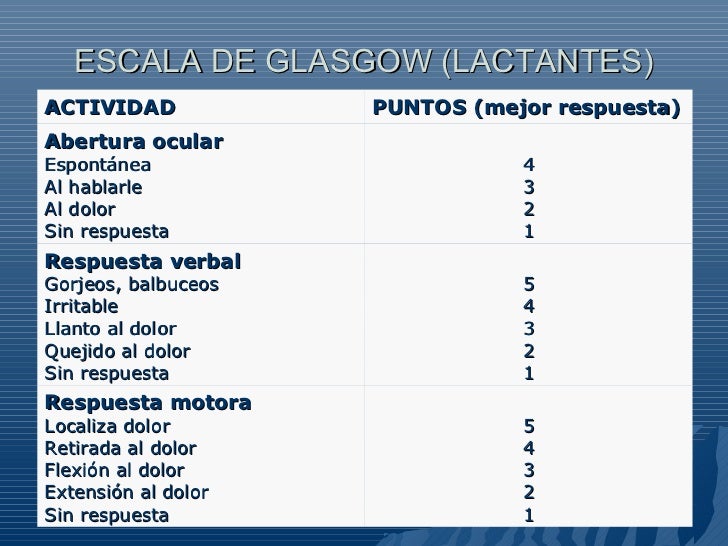
Main article: Pediatric Glasgow Coma ScaleĬhildren below the age of two struggle with the tests necessary for assessment of the Glasgow Coma Scale. Alternatively, if a patient was intubated, their score could be GCS E2 V NT M3. As an example, a person's score might be: GCS 12, E3 V4 M5. The results are reported as the Glasgow Coma Score (the total points from the three tests) and the individual components. When specific tests cannot be performed, they must be reported as "NT" and the total score is not reported. The scale also accounts for situations that prevent appropriate testing (Not Testable). įor example, if a person obeys commands only on their right side, they get a 6 for motor. For each test, the value should be based on the best response that the person being examined can provide.

The Glasgow Coma Scale is reported as the combined score (which ranges from 3 to 15) and the score of each test (E for eye, V for Verbal, and M for Motor). Paralysis/ hemiparesis (acquired causes such as post-stroke, post-neurological injury congenital/innate such as cerebral palsy)Ībnormal extension ( decerebrate posture) įlexion / Withdrawal from painful stimuli Oriented to time, person, and place, converses normally Intubation, non-oral language disability, linguistic barrierĬonfused and disoriented, but able to answer questions The scores for each of these tests are indicated in the table below. The Glasgow Coma Scale is used for people above the age of two and composed of three tests: eye, verbal, and motor responses. However, the GCS score alone should not be used on its own to predict the outcome for an individual person with brain injury.


Lower GCS scores are correlated with higher risk of death. This score is used to guide immediate medical care after a brain injury (such as a car accident) and also to monitor hospitalised patients and track their level of consciousness. A person's GCS score can range from 3 (completely unresponsive) to 15 (responsive). These three behaviours make up the three elements of the scale: eye, verbal, and motor. The GCS assesses a person based on their ability to perform eye movements, speak, and move their body. The Glasgow Coma Scale ( GCS) is a clinical scale used to reliably measure a person's level of consciousness after a brain injury. Not to be confused with Glasgow Outcome Scale.


 0 kommentar(er)
0 kommentar(er)
